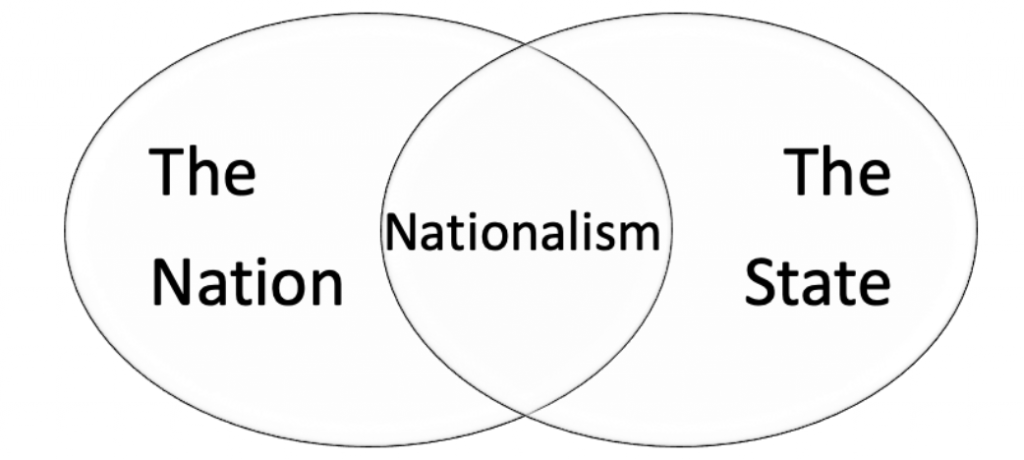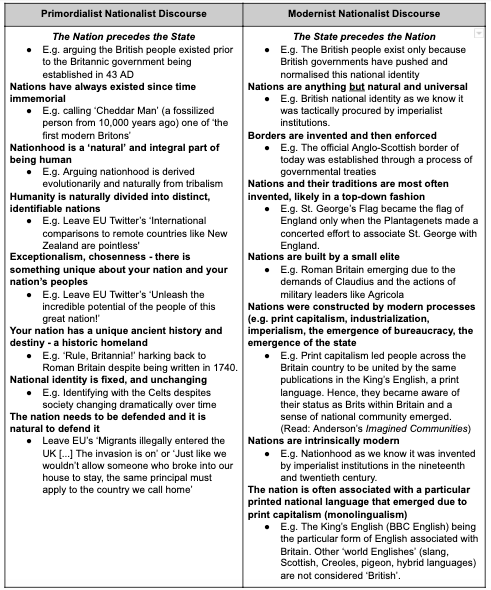Words by Giovanna Demopoulos
In a time when ‘nationalism’, however we define it and whatever we think of it, is indubitably on the rise it seems particularly important to know the basics of nation theory so that we can start keeping an eye out for various nationalist discourses in the material we read and expose ourselves to. This article was inspired by a Comparative Literature module I took called ‘Ideas of Nation’ which dealt with how nations as we know them today might have emerged and what the relevance of nationalism is within our society. Consequently, I began to wonder how the theory we learned could be applied to current debates on British nationhood and Brexit.
For the sake of clarity, here are the definitions of state, nation, and nationhood that were given to me in the module I took:
- The State – ‘The political [institutions] with a high degree of sovereignty holding territory and characterized by a bureaucracy, legal system, and monopoly of the legitimate use of force’ (Max Weber in his essay ‘Politics As A Vocation)
- The Nation – From the Latin Natio, it is a ‘place of origin’. However, it really becomes much more complicated than this.
- Nationalism – The ideology linking the State to the Nation and vice versa.
I would deploy these definitions carefully. None of them are particularly concrete, maybe with the exception of ‘The State’, and they are more codependent than these definitions make them out to be. I am more tempted to define their relationship in the form of a Venn diagram:

Now, where people really divide in terms of defining nation and so in nationalist discourses is whether they follow a primordialist or a modernist approach to nationalism. This is what I think we should keep an eye on because how they are employed can have huge consequences on nationalist feelings. See the following table:

Once you know the hallmarks of primordialist and modernist nationalist discourses, it becomes apparent how prevalent they are in the media and this is in part because politicians know how to use them to manipulate nationalist feelings. Indeed, it’s testament to the intelligence of the Leave campaign that they consistently employ primordialist nationalist discourse to stir strong emotions within the audience they appeal to. Boris Johnson’s speeches are also absolutely flooded with primordialist nationalism which intends to do the same. Yet, let’s not leave the left out of this too, because nearly all forms of political media deal with varying forms of nationalism and it is fairly common for the left to appeal to primordialist nationalism just as much as the right.
 Giovanna Demopoulos is a Comparative Literature student going into their third year and looking to work in academia. They are most fascinated by texts surrounding nationalism, cultural hybridism, and otherization.
Giovanna Demopoulos is a Comparative Literature student going into their third year and looking to work in academia. They are most fascinated by texts surrounding nationalism, cultural hybridism, and otherization.
